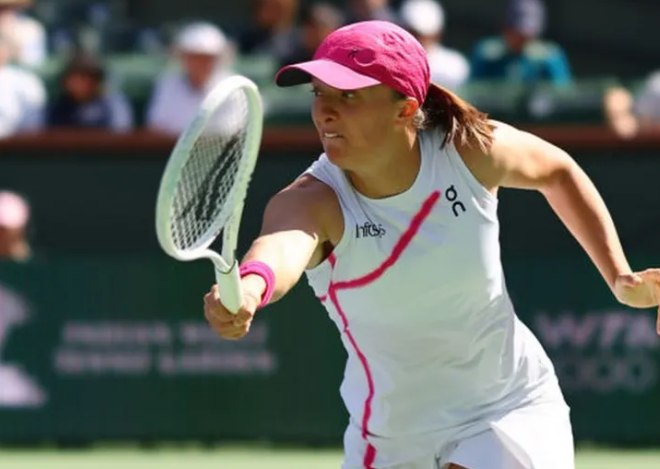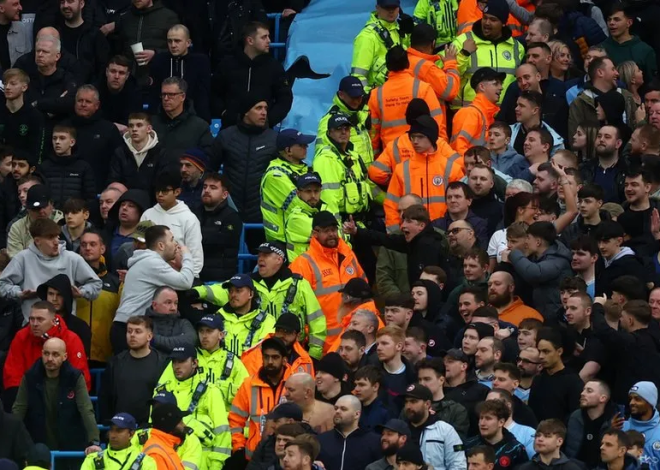
Sir Jim Ratcliffe: What we learned from new Man Utd co-owner’s interview
Billionaire owners of Premier League football clubs are known for being elusive figures.

And yet a relaxed Sir Jim Ratcliffe seemed more than happy to chat as he strode into the boardroom of Ineos’ Knightsbridge headquarters in London for his first interview since becoming the single biggest shareholder at Manchester United.
This was the culmination of a journey that he had hinted at seven years ago when he first told me of his love for the club he had supported since childhood.
On Wednesday, I asked him what it was like to have secured the keys to Old Trafford. “A dream come true,” he replied. Later, he showed us a collection of sports memorabilia, with a photo of United legend George Best in pride of place.
Despite denials of ‘greenwashing’, Ineos has long been accused of using a range of sports investments to improve its image, amid criticism from campaigners over the petrochemicals giant’s impact on the environment.
But once in Ratcliffe’s company, it is hard not to conclude that the thrill of the challenge and a love of adventure is a major part of his motivation.
As well as conveying his love for the club, Ratcliffe wanted to express his ambition and his determination to revive its fortunes. And while his admiration for both Manchester City and Liverpool shone through, he also insisted that both could be “knocked off their perch” within three years.
While such rhetoric – echoing the sentiments of Sir Alex Ferguson’s statement of intent after arriving as manager in 1986 – will have resonated with many fans, it may backfire on the 71-year-old if United fail to deliver in coming seasons.
But to be fair to Ratcliffe, he seemed to be speaking from the heart. He also warned that his plan to turn the club into title contenders again would require patience, describing it as: “The greatest challenge.”
‘Fans will admire Ratcliffe answering difficult questions’
Other territory was trickier for Ratcliffe to navigate.
His praise for the Glazer family will have raised eyebrows among those supporters furious with the Americans for the debt and decline that has come to define their 19-year ownership.
Ratcliffe appealed for time to prove their power-sharing relationship could work. And while being careful not to criticise the Glazers directly, and emphasising the need to “look forwards, not backwards”, he admitted to me that he understood the fans’ anger. And he made clear that the club’s structure, recruitment, performances under the Glazers in recent years had not been good enough.
Ratcliffe is one of the world’s wealthiest businessmen. And despite a down-to-earth manner, a sense of stubbornness came through in discussing the pursuit of Newcastle’s sporting director Dan Ashworth as part of the Ineos overhaul at Old Trafford. Ratcliffe dismissed talk of a £20 million fee to release Ashworth from gardening leave as “silly numbers”. But many would argue Newcastle are well within their rights to demand such compensation given the disruption United’s approach has caused them.
The suggestion by Ratcliffe that Mason Greenwood may still have a future at Old Trafford will also have sparked debate and surprise in some quarters. The striker is on loan at Spanish club Getafe after an internal investigation concluded he should play elsewhere.
That came after charges against the player, including attempted rape and assault, were dropped. He denied all the alleged offences. But any return could risk a repeat of the outcry from both in and outside the club when it initially considered reintegrating him last year, before a U-turn.
Another major decision now facing Ratcliffe is what to do about the “tired” Old Trafford stadium.
His preference for a new “world-class” stadium will have impressed many fans dismayed by a lack of investment into the club’s ageing infrastructure. But his view that there needs to be “a conversation with government” over possible public funding for such a project, as part of a wider regeneration of the surrounding area, has been quickly dismissed by those who believe a man worth around £30bn, and based in Monaco, should not be getting any financial help from the British taxpayer.
The government is also likely to reject such a suggestion.
One source told BBC Sport that funding football stadiums brought “obvious integrity issues”.
Ratcliffe does not come across as a man who gets too bothered by criticism. He is accustomed to handling thorny issues while heading up his vast business empire. He explained to me how 24 hours earlier, he been at a major chemicals industry summit in Antwerp, expressing his concerns over carbon taxation and competitiveness to some of Europe’s top politicians.
A day later, here he was in London, discussing the future of United, their coach, and their stadium.
And by fronting up to the media in such a way, he has already distinguished himself from the Glazers.
Many fans will admire the openness and accountability, and his willingness to answer difficult questions. But ultimately he will be judged on whether he can deliver on his pledge to restore United to the top of the game. That mission begins now.
So far, Ratcliffe has experienced mixed fortunes in his range of other sporting pursuits – saying “we don’t mind people making mistakes but don’t make the same mistake twice”. However, the scrutiny triggered by his biggest investment by far will be on an entirely different level. It will be fascinating to see how it plays out.
No endorsement of Ten Hag, but Champions League key
Ratcliffe struck a chord with Manchester United fans with much of what he said to the BBC.
However, bold words are one thing. Execution is a completely different matter.
Firstly, the spectre of Premier League financial regulations hangs heavy over every club. For a club such as United, who have sustained significant losses funding Erik ten Hag’s squad building over the past two summers, it brings increased need for caution.
It is why Ratcliffe also said Champions League qualification is of major significance. Whisper it quietly at Old Trafford, but United would benefit greatly if Manchester City and Liverpool won their respective European competitions as it would increase the chances of five English representatives getting into next season’s expanded 36-team competition, which has more matches and will generate more money.
Almost as much as improving United at buying better players, new chief executive Omar Berrada and intended sporting director Dan Ashworth need to make the club better at selling them.
Since Romelu Lukaku’s exit for Inter Milan in 2019, they have sold one player – Wales international Dan James – for more than £20m.
It is the stinging reality that Jude Bellingham would not have considered joining United last summer. The same is also true of Erling Haaland the year before. United did not try to sign Declan Rice before he joined Arsenal. Once you start seeking alternatives for players of that calibre, you are picking from a level below.
Marcus Rashford’s future is fascinating not least because, under the current way home-grown players are valued under Financial Fair Play rules, he would make a massive difference to United’s budget because any transfer fee would be pure profit.
Fortunes can change very quickly in football but unless City, Liverpool and Arsenal all take a significant step back, United will have to close the gap in stages rather than doing it straight away.
Since taking over Nice in 2019, Ratcliffe’s Ineos operation has sacked five managers – Ratcliffe told BBC Sport the ownership had “made mistakes” that “we wouldn’t want to repeat”.
While Ratcliffe avoided speaking directly about Ten Hag’s future, it is known Ashworth likes to take time assessing situations before reaching any conclusions. But how much time?
Ratcliffe’s Champions League qualification aim suggests the Dutchman will at least get until the end of the season, by which time his contract will have one year to run.
David Moyes and Louis van Gaal were both sacked for failing to secure a place at Europe’s top table – in Van Gaal’s case despite winning the FA Cup. Jose Mourinho went when the top four was sliding away. The same was true of Ole Gunnar Solskjaer.
United have new people making decisions now but given the financial reality of life at Old Trafford, it would be a surprise if the same criteria did not apply.




